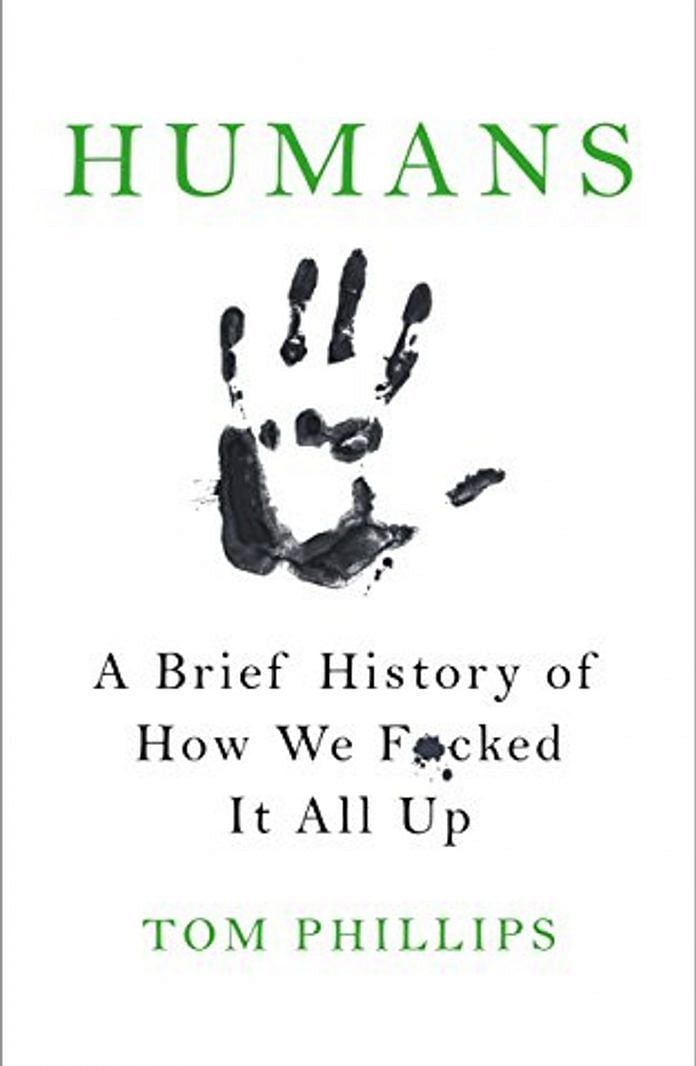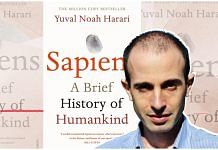
Tom Phillips’s book makes you ponder beyond rhetoric, while lunatic, eccentric characters from history keep you entertained.
Overall Rating: 4/5
If you follow Yuval Noah Harari and/or John Oliver and are wondering why these names should be used together, then ‘Humans – A Brief History of How We F*cked It All Up’ might be the answer for you. For starters, the book’s name resembles a dystopian version of Harari’s Sapiens – A Brief History of Humankind (intentional or not is food for thought) while both the prologue and epilogue remind the readers of John Oliver’s satirical style.
As one would expect from a former Buzzfeed writer, ‘Humans’ has been written in a humourist style to document historical facts – and rest assured, not the mainstream ones.
Tom Phillips has managed to cover the entire spectrum of the history of humankind, albeit in no particular order, and turned the oft-used narrative upside down. By touching upon only the critical elements needed to construct the mental final picture of each historical event, he has managed to enrich the text by adding numerous examples of a kind, to send a compelling message in each chapter.
The chapter on ‘Follow The Leader’ is full of the whimsical diktats of Turkmenistan’s Saparmurat Niyazov; the success of colonialism is marked by colossal failure of William Paterson, a Dutch trader and banker obsessed with the idea of Darien; and instances of war are filled with drunken armies attacking themselves. This makes the book thought-provoking and yet casual and pun-filled.
However, a big negative is the writer’s intermittent tendency to establish causality of these great lessons from history with psychological concepts such as groupthink, anchoring heuristic etc. This leaves the reader a tad confused about the core message of the book.
Additionally, linking select historical incidents to the failure of the overall human psyche and inability to learn from previous mistakes seems like a classic case of comparison class forecasting or hasty generalisation.
Despite this, the book is fresh and bold in its thought. Even if you are a history buff, the book will surprise you with little-known tales.
It makes you ponder beyond rhetoric. And the icing on the cake is that the lunatic, eccentric characters from history keep you entertained.
The author is an energy sector professional with a global consulting firm






COMMENTS